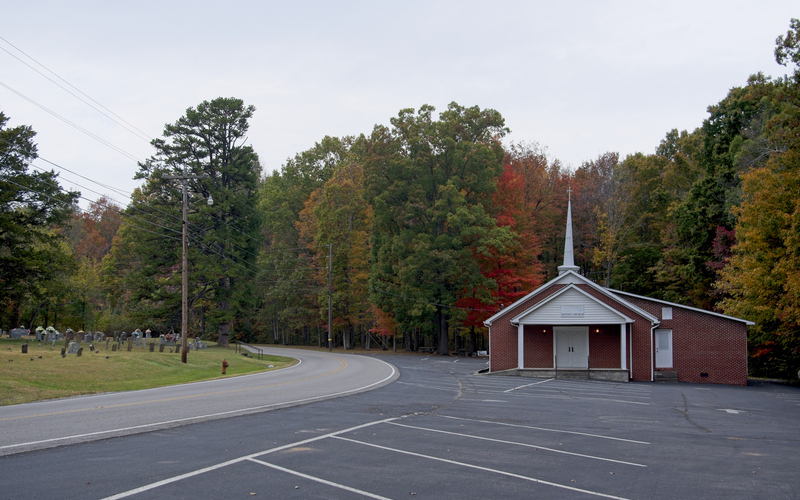Pride on the Battlefield
Sign up for a six month free
trial of The Stand Magazine!
In the spiritual warfare that characterizes the Christian life, believers certainly don’t want to shoot themselves in the foot. The battle is hard enough without unforced errors.
The Old Testament is filled with examples of what to do and what not to do. For example, as the conquest of Canaan began to unfold in the Book of Joshua, what followed the glorious victory over Jericho was an example of an unforced error.
The subsequent defeat of Israel at the insignificant city of Ai was primarily about the devastating effects of disobedience (Joshua 7). Achan’s love of gold led to the defeat of the nation, but we should note that he had marched around Jericho just like everyone else. In other words, outwardly he seemed OK; but inwardly he was not submitted to God – and his sins found him out.
Yet there was more to the story, and it provides an additional warning to the Christian. In the aftermath of the Jericho victory, Joshua sent a reconnaissance team to Ai. Their opinion of the city was that it was only a little place. There was no need to send many warriors to conquer it.
Those scouting the city said, “Do not let all the people go up; only about two or three thousand men need go up to Ai; do not make all the people toil up there, for they are few” (Joshua 7:3).
This recommendation was accepted, yet there is no indication that Joshua and his fellow leaders asked God about this decision. If they had, perhaps the Lord would have warned them that there truly was ‘sin in the camp’ and that defeat was imminent.
In any case, the Israelites meandered nonchalantly to this little place. The result was a rout of God’s people.
No ‘trifles’ in warfare
Like so many of our human foibles, this nonchalance began with pride. Of course, pride can have many manifestations, but one of them is that it can lead people to a series of small miscalculations that, combined, result in a crushing defeat.
The first miscalculation is overconfidence. Clearly, Israel believed that the victory over Jericho meant they could assume a continual string of triumphs. Putting it in a sports context, we might say they had begun to read their own press clippings.
However, one of the problems with overconfidence is that it can lead to an attitude of independence from God. String together some triumphs and many of us begin to ignore the Christian disciplines that led to victory in the first place.
How often do we go about the Christian walk without prayer or Bible reading? Without asking God for His counsel? Or without waiting upon Him for the answer? How else should we interpret such spiritual neglect if not calling it pride?
Pride says I can get through the day without prayer. Pride says I don’t need the word of God today. Pride says I can do this or that without asking God for divine wisdom. Pride says I will act without waiting for God’s OK.
This might sound harsh, but when we have pride in our hearts, we engage in the related sin of presumption – when I act on my own accord, in my own wisdom, and in my own strength. We presume God will honor our humanistic activities. This is the result of overconfidence.
Finally, thinking ourselves unbeatable, we despise our enemy, not taking seriously his ability to inflict harm.
There are no “trifles” in spiritual warfare, according to Jesse Penn-Lewis, a Welsh evangelical writer and speaker of the last century. In The Conquest of Canaan, she says we must take spiritual warfare seriously, “else in the unprotected place – the matter you think too small to pray about – you may get a big defeat.”
‘I will shake myself free.’
In Scripture, Samson is one of the clearest examples of a gifted man, called by the Lord to serve His people, who was undone by pride. Because he was given great strength by God to do battle with and defeat the Philistines, Samson won victory after victory over Israel’s enemies.
Then he fell in love with a beautiful foreigner, the infamous Delilah. She was bribed by the Philistines to discover the secret to Samson’s strength, and she finally succeeded. He told her that, from his birth until that very day, no razor had ever touched his head according to the commandment of God.
It is doubtful that we are supposed to believe there was anything “magical” about Samson’s long hair. Instead, the continuation of his supernatural strength was linked to keeping the commandment. When Samson acted foolishly in revealing the truth to Delilah, she betrayed him to the enemies of Israel.
In Judges 16:20, Delilah awakened Samson by sounding the alarm, “The Philistines are upon you, Samson!” His response to his danger reveals his pride, even in the face of his foolishness:
“And he awoke from his sleep and said, ‘I will go out as at other times and shake myself free.’ But he did not know that the Lord had left him.”
It is one of the saddest moments in Scripture. His strength gone, he was captured by the Philistines, maimed, and mocked. The wicked shouted in triumph over the man of God.
Although God answers Samson’s final prayer and allows him one more triumph, we are surely meant to read the life of Samson as a warning. We must never assume that what we were able to do yesterday is what we will do today – especially if we are walking in pride, overconfidence, and presumption.
Some simple steps
This is not to recommend paralysis as a Christian characteristic as if we have to pray about every choice in life before making a decision. Remember, we are discussing spiritual warfare –– not menu items for lunch. If you are a Marine in battle, you don’t have to pray every time you pull the trigger. In that case, you trust your training.
However, when we are engaged as representatives of God, we must always be cognizant of our need for His help. Deciding to eat a hamburger instead of chicken is one thing; deciding whom to marry without prayer or wise counsel is another thing entirely.
So, here are a few, simple ideas to get our focus back on the Lord and avoid the pitfalls of life and the snares of the Devil:
(1) Start your day in prayer asking for God’s help in making decisions in the hours to come. Be aware of your need for divine assistance and do not presume that your will and God’s will are the same.
(2) At night, reflect on the day you had. Discuss it with God and ask the Holy Spirit to point out the spiritual errors made and sins committed. Deal with these by confession and repentance.
(3) Study the word of God, because it is His training manual. He uses it to change you and make you wise concerning spiritual things – including spiritual warfare.
In the end, avoiding the mistakes generated by human pride is not an easy task. But with God’s help, we can walk in the humility that releases the grace of God. That’s when the Philistines increasingly fall under our feet – where they belong.

Sign up for a free six-month trial of
The Stand Magazine!
Sign up for free to receive notable blogs delivered to your email weekly.



















